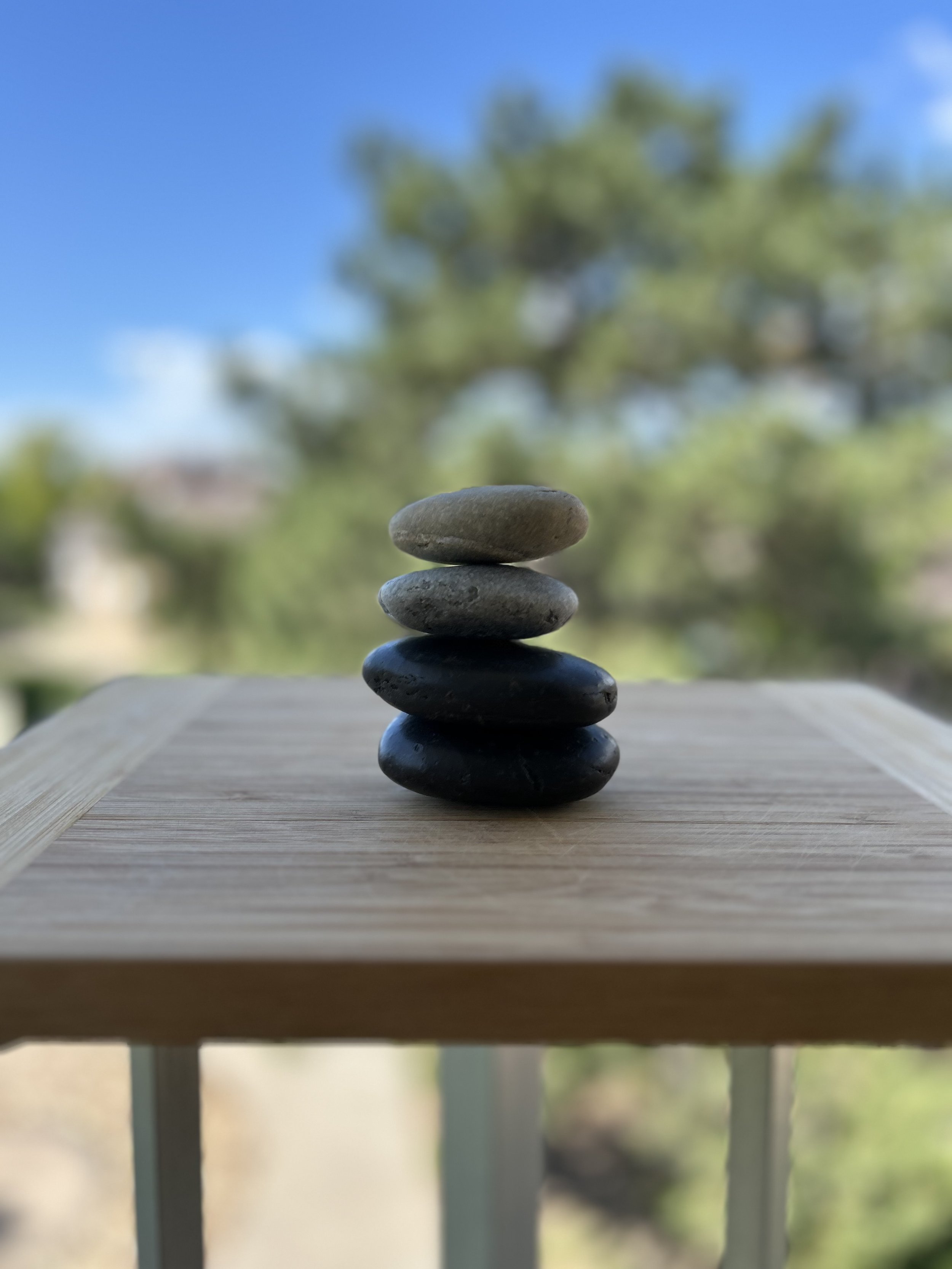
Reiki FAQs
-
Reiki is a hands-on or remote healing technique that works with our body’s ability to heal itself through deep relaxation and stress reduction.
Reiki does no harm. It isn’t time-bound and doesn’t require that the practitioner and the client be in the same room together in order to benefit from its healing affects.
-
When you have a Reiki session with me, we begin by understanding the intention you’ve brought with you for the session. Physical pain, trouble sleeping, stress—these are some examples. You might be experiencing grief due to the loss of a loved one, you might just want to feel better, feel happier. Don’t worry if you don’t have anything specific in mind. Reiki energy knows where to go for healing.
While receiving Reiki you might feel tingling sensations, warmth or coolness in different parts of your body. Keep in mind that if you don’t feel any of these sensations, that’s ok. Reiki energy is still working! Everyone’s response to healing is unique, and each session you have will be unique.
We’ll close our session by taking a few minutes to allow you to readjust to your surroundings and to give us some time to share any observations about your experience.
-
Distant or remote Reiki means that the Reiki practitioner and the client are not close enough for a light touch/hands-on session. Since Reiki is energy, it is neither time-bound nor space-bound. The practitioner and the client don’t have to be in the same room to experience its benefits. A client can live in a different part of town, a different city, state or across the world in a different country and still receive its healing benefits.
-
Distant or remote Reiki is just as effective as in-person Reiki. As a matter of fact, some clients prefer it. Being at home or place where you’re most comfortable, where you won’t have to get up and drive or take a cab or public transportation after a Reiki session, allows you to relish in the healing energy uninterrupted for as long as you want.
-
Rei means Spiritual Wisdom (spiritual in this context is not religious. It means Unconditional Love and Compassion)
Ki means Life Energy
During a Reiki session, a Reiki practitioner channels Rei. The Rei or Unconditional Love and Compassion flows into the Ki that is moving slowly, out of flow or stuck. When the imbalanced Ki is restored to balance, the client’s overall energy is balanced resulting in a feeling of well-being.
-
People of all ages can receive Reiki, from infants to those at the end of their lives.
Receiving Reiki helps heal our emotional, spiritual and physical well-being. You can receive Reiki to help keep your energy body (aura, chakras and meridians) cleared and balanced. You might also choose to receive Reiki as an integrative (also called complementary) therapy along with your medical or mental health wellness program.
Reiki can also be given to animals, plants and life situations. Reiki videos you may have seen on social media platforms typically help with life situations like improving relationships or improving finances.
-
This is the question most often asked by new clients after a session. Receiving Reiki regularly is recommended in order to experience its full benefits. Frequency will depend on the individual client and their needs. You can discuss an appropriate Reiki schedule with your practitioner at the beginning or end of your Reiki session.
In general though, receiving Reiki once a month or every six weeks works well for those who want to maintain balanced energy. For those under particularly stressful situations, it’s sometimes beneficial to go more frequently for a short period of time and then move to once a month or every six weeks for a period of time.
-
There is a growing number of medical facilities and mental health practices across the US that include Reiki as part of a patient’s wellness program. In these settings Reiki is referred to as a complementary or integrative therapy. Reiki can help ease pain, anxiety, nausea and other issues associated with medical procedures like chemotherapy, radiation or surgery. It helps patients who suffer from PTSD and anxiety.
But keep in mind, Reiki is not a replacement for medical or mental healthcare and anyone considering receiving Reiki as an integrative therapy to medical or mental health care should consult with their physician or therapist first.
-
We all have access to Rei (love and compassion) and we’re all alive because we all have Ki.
Reiki can be learned by anyone interested in healing and balancing their own energy as well as healing and balancing the energy of others.
-
Due to its higher frequency, Holy Fire® Reiki doesn’t require the same hands-on ritual used during traditional Usui attunements. Instead, the attunements have been replaced with Placements and Ignitions that the Reiki Master transmits to the students. Since they are of a higher frequency, they can be given over distance, meaning the Reiki Master and the students can be in different locations. And yes, Placements and Ignitions are very potent.
